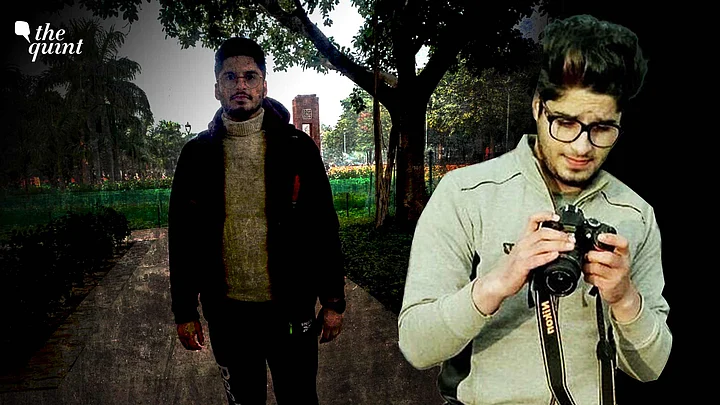When Manan Dar first started clicking photographs, they would mostly be centered around the everyday, sometimes mundane aspects of life in Kashmir. The streets, the sky, the snow. In fact, his first set of photographs that garnered the attention of many from the fraternity, was that of migratory birds making their way to Srinagar’s Dal Lake. The series was published in The Kashmir Patriot, a local news portal, in February 2020. “It felt great to see people recognising and appreciating my work,” Manan says.
Fast forward October 2021— Manan was arrested by the National Investigation Agency (NIA) and was charged with the Unlawful Activities Prevention Act (UAPA). The NIA had alleged that “under the cover of being a photojournalist” Manan’s phone had “images of security forces, deployment, pickets”, and that he was part of a “hybrid cadre meant to execute small scale attacks such as target killing of minorities, security forces, political leaders and other important persons to create unrest and spread terror”. On 2 January 2022, a Delhi court granted bail to the photographer stating that the accusation “does not appear to be cogent and true.”
The 26-year-old, who is now back home in Srinagar, feels like he has lost a lifetime in the 14 months he spent in Delhi’s Tihar jail.
Photo Featured in Guardian, Other Accolades
Manan was gifted a camera by his father soon after he completed his diploma in photography and videography from Srinagar’s Industrial Training Institute in 2019. When Manan had sought admission in the one-year long course, it was on the insistence of a friend, and he didn’t think he would go on to develop such a keen interest in the subject.
After graduation, he began working as a freelancer, and his images soon went on to be picked up by international organisations like the Pacific Press, SIPA, ANP and Getty images.
However, what came as a real shot in the arm for Manan was when his photograph was featured in Guardian’s ‘Twenty photographs of the week’ in July 2021. The photograph captured a Kashmiri woman, looking petrified and holding her stole on her mouth, staring at a damaged house. The caption read: “A Kashmiri woman looks inside a house damaged during clashes between militants and Indian forces in the Danmar area of Srinagar.”
“I know it’s that image that put my work on the map, internationally,” says Manan.
Days after Manan’s arrest in October 2021, his younger brother Hanan was also arrested in the same case and is still in jail. “When I got arrested, I felt like at least my parents have my brother with them. But then when he got arrested too, I was heartbroken for my parents,” Manan says.
In the period that he was incarcerated, Manan missed the weddings of two of his closest cousins, milestones of the children in the extended family, as well as a number of other important personal moments.
Despite this, there was something that gave him immense joy even as he was within the jail premises. It was when in October 2022, Kashmiri photojournalist Sanna Irshad Mattoo was awarded the Pulitzer Prize. “When I heard that news, I was so proud and delighted. It’s the best thing that could have happened, because it opens doors for many other young photojournalists to go after their dreams,” Manan says.
Not Just Photos, Manan Now Wants To Write Too
In the last few years, many Kashmiri journalists have faced arrests, including Aasif Sultan, Fahad Shah, Sajad Gul sand Khalid Gul, while many others routinely face detention. In such circumstances, journalism has increasingly become a severely dangerous profession in the region.
Many civilians also don’t open up to journalists as freely anymore. Manan, whose photojournalism would often include speaking to civilians who he has photographed so that he can write a contextual caption, would find that many are wary to do so. “They won’t talk as freely because there is this constant fear of how media and journalists in Kashmir are targeted,” he says.
But in the time that Manan was away, his commitment to the profession has incidentally, only increased. “I spent all my time in the jail reading. Reading books, newspapers, everything. I learnt and understood so much about the discipline of journalism. I can’t wait to go back to clicking photographs and continue telling Kashmir's story,” Manan says. This experience of being imprisoned brought about a significant change in his ambitions and goals. “I no longer want to do only photojournalism, but written journalism as well. I want to be able to tell stories holistically,” he says.
The dangers and threats notwithstanding, he feels hopeful for journalism in Kashmir. “Ultimately we have to have faith in judiciary, as the judiciary does justice and sees the truth.”
(At The Quint, we question everything. Play an active role in shaping our journalism by becoming a member today.)
